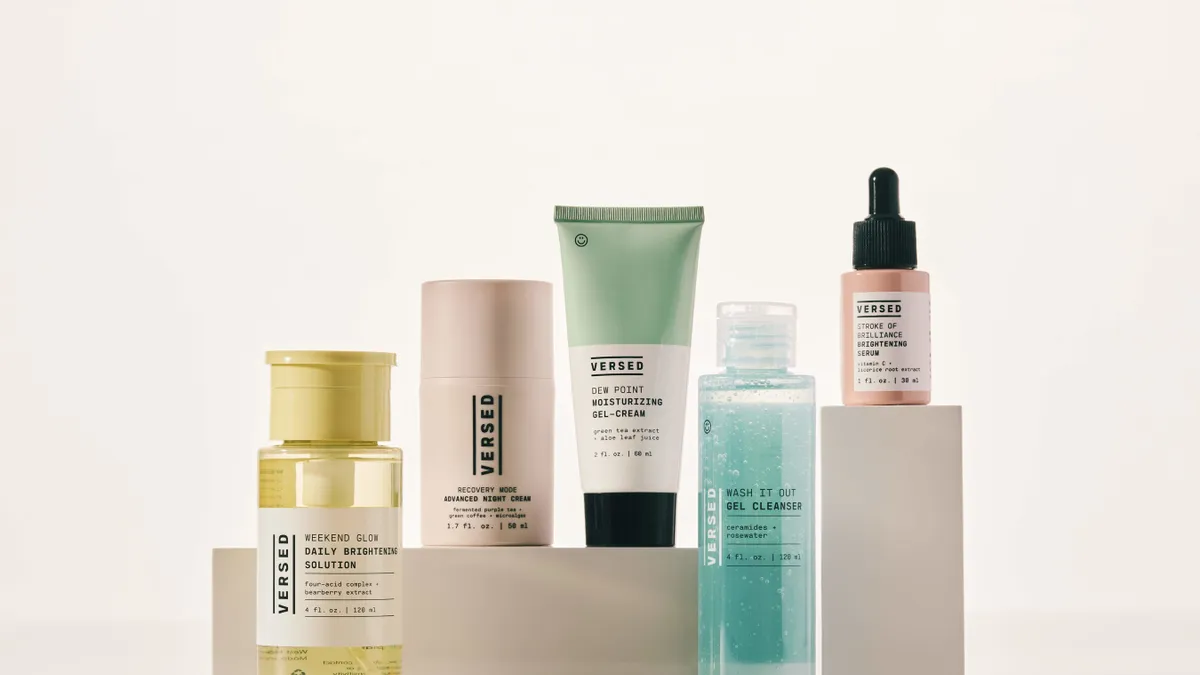With its founder stepping away from the role, “clean” beauty brand Versed appointed Kerry Sullivan as its new chief executive officer last month.
Sullivan, who has the new role listed on LinkedIn, was most recently the chief marketing officer at Dollar Shave Club. Direct-to-consumer brand Dollar Shave Club was acquired by Unilever for $1 billion in July 2016, and its founder stepped down from the CEO position in January 2021.
Prior to that, Sullivan worked at Johnson & Johnson holding various roles, including general manager for Neutrogena, senior director of marketing and senior marketing director of beauty care for the Asia Pacific region.
The appointment means Versed founder Katherine Power will step away from the chief role. Power is currently the CEO of Merit Beauty, another beauty brand she founded in 2020. Merit — available through its DTC channels and Sephora — launched in January 2021 and shortly after announced it had raised $20 million in a Series A funding round.
Versed launched in 2019, and is now sold through mass retailers in addition to its direct-to-consumer website. The company started rolling out at Walmart in February 2022, with plans to be in 3,000 locations by the end of that month.
The skin care company announced in May 2019 that it would be available at around 1,400 Target stores. Versed also said it would roll out to Riley Rose, Revolve and DermStore by July of that year.
Plenty of newer brands have focused on expanding their wholesale presence. DTC hair care company Odele and beauty brand Beautycounter both announced last month that they would sell through Ulta. Meanwhile, skin care brand Futurewise launched into Target, and cleaning company Grove Collaborative expanded with Amazon and Walmart in February.
Consumer interest in clean beauty options is growing, and retailers such as Target have even launched their own labels for brands that fit into their determined standards.
The global clean beauty market was valued at $7 billion in 2022 and is expected to reach about $14 billion by 2028, according to February data from Research and Markets.
While many clean beauty and lifestyle brands claim to be more sustainable and safer options for consumers, the marketing term tends to vary in definition and standards between companies. The Federal Trade Commission announced in December that it was requesting input on updating its “Green Guides,” which are a set of guidelines for environmental marketing claims that were last reviewed in 2012.
At the time, FTC Chair Lina Khan acknowledged that as consumer interest in sustainable purchases has grown, businesses have taken notice.














